Current Research
Most of my work is concerned to explore historical processes of interaction among 'space', 'populations' and 'power'. My approach is interdisciplinary: I draw on methods and theoretical perspectives from human geography, cultural studies, social anthropology, sociology, economics and political science. Although I primarily conduct my research on twentieth-century Russian and East European history, much of my work is also comparative in approach.
Within this general problematic, I pursue the following overlapping and inter-related themes:
 1. How the 'place' and 'displacement' of individuals or groups shapes the construction of social identities (national, regional, ethnic, gender, etc.) and social practices.
1. How the 'place' and 'displacement' of individuals or groups shapes the construction of social identities (national, regional, ethnic, gender, etc.) and social practices.
2. How, conversely, individuals and groups constitute and contest their identities in space and through spatial practices (e.g. through collective memory, commemoration and the popular use of history; in everyday life).
3. Spatial dimensions of imperial and state power; of nationalism and nation-building; of ethnic mobilisation, conflict and co-existence; of processes of political, social, economic and cultural transformation.
4. Technologies of spatial construction and regulation, both in terms of practice (e.g. territorial and urba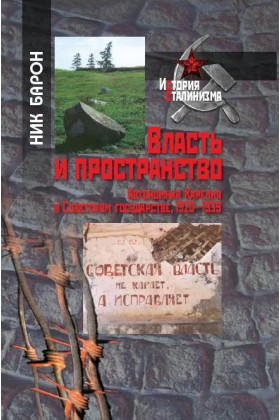 n planning; regional policies; economic development strategies; border settlement and enforcement; migration and mobility controls, etc.) and in terms of discourse or representation (e.g. historiography, geography, cartography, etc.); and modes of popular or peripheral 'resistance' or 'subversion' to these technologies.
n planning; regional policies; economic development strategies; border settlement and enforcement; migration and mobility controls, etc.) and in terms of discourse or representation (e.g. historiography, geography, cartography, etc.); and modes of popular or peripheral 'resistance' or 'subversion' to these technologies.
5. Representations of space in diverse contexts (e.g. in cartography, film, graphic arts, architecture, town planning, etc.) and the relationship of spatial representations with spatial practices of power and resistance and with the lived experience of space.
This rubric informs much of my teaching and supervision, especially at third-year and postgraduate level, and my research and public engagement activities, which are outlined below.
Note on Publications
For my books, articles and chapters arising from the projects outlined below, please click 'Publications' tab above. I have also written and published on the history of film, comparative historiography, historical theory and methodology, modern British cultural and literary history, and on contemporary questions of post-Soviet political development, cultural transformation and social memory.
Outside academia, I have written on economic, financial and business affairs in the Russian Federation, on conflict and forced migration in sub-Saharan Africa, and on Moscow's architectural history and heritage.
Current Research Project & Public Engagement Activities
'Mapping the Soviet: Cartography, Culture and Power from Lenin to Stalin, 1917-53'
Funding: I developed the project with support from the University of Nottingham and the J.B. Harley Research Fellowship Trust. Some of the archival fieldwork and related impact activities were funded by an AHRC Research Fellowship, 2012-13, within the 'Science in Culture' programme, and a British Academy Small Grant, 2011-13. In spring 2023, I received a Gerda Henkel Research Scholarship and a Leverhulme Trust Research Fellowship, which will co-fund research leave dedicated to this project from July 2023 to September 2025. I am very grateful to all these organisations for their support..
Research: This project explores the history of Soviet cartography between the October revolution and the death of Stalin, in particular examining the ways in which the communist regime used maps to construct and control knowledge of space and territory, and the role of cartography in wider discourses of social identity and cultural transformation. The project's wider aim is to establish a new interpretation of the political role and significance of cartographic practice and map culture in the modern world. It has two strands: 'Cartography, Politics and Power', which examines the development of cartographic policy, leadership and organisation, regulation and production; and 'Cartography and Cultural Revolution', which considers the role and significance of maps and mapping in forming the Soviet spatial imagination and creating the 'New Soviet Person'. The research is grounded in a close reading of many thousands of declassified Soviet archival documents concerning the state's administration, control and conduct of mapping, as well as a vast range of published maps and atlases; school textbooks; specialist and popular handbooks on map-making and map-reading; and literary works, films, photography, architecture and graphic arts (including 'ephemeral' materials such as postcards, stamps or newspaper cartoons) featuring cartographic themes or imagery.
This project explores the history of Soviet cartography between the October revolution and the death of Stalin, in particular examining the ways in which the communist regime used maps to construct and control knowledge of space and territory, and the role of cartography in wider discourses of social identity and cultural transformation. The project's wider aim is to establish a new interpretation of the political role and significance of cartographic practice and map culture in the modern world. It has two strands: 'Cartography, Politics and Power', which examines the development of cartographic policy, leadership and organisation, regulation and production; and 'Cartography and Cultural Revolution', which considers the role and significance of maps and mapping in forming the Soviet spatial imagination and creating the 'New Soviet Person'. The research is grounded in a close reading of many thousands of declassified Soviet archival documents concerning the state's administration, control and conduct of mapping, as well as a vast range of published maps and atlases; school textbooks; specialist and popular handbooks on map-making and map-reading; and literary works, films, photography, architecture and graphic arts (including 'ephemeral' materials such as postcards, stamps or newspaper cartoons) featuring cartographic themes or imagery.
 Public Engagement: With AHRC funding, I acted as Consultant to an exhibition 'Vybiraia marshrut / Defining the route' (examining the spatial structures and subjectivities implicated in the creation and experience of artistic exhibits), designed by Russian artist Sasha Sokolov for the 5th Moscow Biennale of Modern Art, 17 September to 9 October 2013 (links open new windows).
Public Engagement: With AHRC funding, I acted as Consultant to an exhibition 'Vybiraia marshrut / Defining the route' (examining the spatial structures and subjectivities implicated in the creation and experience of artistic exhibits), designed by Russian artist Sasha Sokolov for the 5th Moscow Biennale of Modern Art, 17 September to 9 October 2013 (links open new windows).
I also acted as Consultant to a major British Library exhibition 'Maps and the Twentieth Century: Drawing the Line' (Nov 2016 - Mar 2017) and as Associate Curator of a second BL exhibition 'Russian Revolution: Hope, Tragedy, Myths' (April-Sept 2017). Earlier, I had served as Consultant to another British Library exhibition, 'Magnificent Maps: Power, Propaganda and Art', 2010.
Research Supervision
I supervise postgraduate and postdoctoral research in most areas of 20th century Russian and East European political, cultural, economic and social history and historical geography. I have a track-record of supporting students in securing University of Nottingham and UK Research Council funding (see below), as well as supplementary travel and research bursaries, and I welcome enquiries or applications from any student intending to conduct either full-time or part-time research within my areas of interest.
Former postdocs:
Dr. Anna Toropova, 'Cinema and Medicine in Early Soviet Russia, 1917-1936', funded by Wellcome Trust Research Fellowship, 2016-2020. Currently Departmental Lecturer in Russian History at Oxford School of Global and Area Studies and the Faculty of History.
Dr. Siobhan Peeling, AHRC Postdoctoral Research Fellow, 2011-12, on impact project Refugees in post-1945 Europe: Experiences in and beyond the DP camp (for details, see above). Subsequently: University-funded 'Community Engagement Consultant' in History and Tutor in History and in Russian Studies, University of Nottingham, 2012-13; AHRC-funded Research Associate (under Sarah Badcock's supervision) and Centre for Advanced Studies Postdoctoral Fellow (under our joint supervision), 2013-14; Honorary Research Fellow and Teaching Associate, Department of History, 2015..
Dr. Tomas Balkelis, AHRC Postdoctoral Research Fellow, 2006-2009, on research project Population Displacement, State Practice and Social Experience in Russia and Eastern Europe, 1930-1956. Subsequently: European Research Council Postdoctoral Research Fellow at University College Dublin, 2009-2013; Director of Lithuanian Research Council funded project at Vilnius University, 2013-15; Visiting Scholar at the Center for Russian and East European Studies at Stanford University, 2015-16. Currently Senior Research Fellow at the Lithuanian Institute of History in Vilnius.
Current Research Students:
Elysia Heitmar, 'Refugee Voices: Exploring the Life Stories of 1956 Hungarian Refugees in Britain' (joint supervisor with Sarah Badcock; 1+3 ESRC-funded; starting MA year 2023).
Domagoj Mihaljevic, 'Contradictions of Modernization between "West" and "East": Yugoslav Development Strategy for Integrating into the World Market, 1958-1980' (joint supervisor with Sarah Badcock; 1+3 ESRC-funded, with UoN International Scholarship; starting MA year 2022).
Liudmila Liagushkina, 'From arrest to arrest: experiences of re-convicted victims of Stalinist terror in the USSR, 1930-1953' (joint supervisor with Sarah Badcock; 1+3 ESRC-funded; starting MA year 2022).
Zack Palmer, 'Selling Space, Controlling Land: A Political Economy of Cartography in Early Modern England' (second supervisor with David Gehring; 1+3 ESRC-funded).
Luke Wain, 'Female Labour in the Late Imperial Russian Cotton Industry' (joint supervisor with Sarah Badcock; 1+3 ESRC-funded).
Helen Lachal, 'Children's Periodicals and the Socio-Political Formation of Young Readers in the USSR, 1956-1982' (joint supervisor with Sarah Badcock, 1+3 ESRC-funded).
Mehmet Akgül, 'Armenian Revolutionaries in nineteenth century Russia' (joint supervisor with Sarah Badcock; Funded by Turkish government).
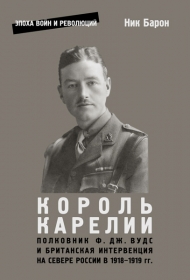 Former Research Students:
Former Research Students:
Jessica Lovett, 'A Populous Nation? The Political Use of Demographic Statistics in the USSR, 1965-1989' (PhD, 2022, joint supervisor with Sarah Badcock; 1+3 ESRC-funded). Since graduation working in the UK Civil Service.
Szinan Radi, 'Contesting Money: society, public policy and the state in Hungary, 1945-1958' (PhD 2023, joint supervisor with Sarah Badcock; 1+3 ESRC-funded). Since graduation has held Postdoc positions at New York State University and the University of Cambridge.
Jonathan Rowson, 'Out-Migration in the Russian Village, 1880-1914: a Regional Case Study' (PhD, 2020, joint supervisor with Sarah Badcock; 1+3 ESRC-funded). Since graduation has been working in the private sector.
Andru Chiorean, 'Re-Writing the New Man: Censorship in Communist Romania, 1949-1977' (PhD, 2020, lead supervisor; funded by School of History Studentship; Harvard University Visiting Fellowship, 2011-12; Davis Graduate Student Travel Grant, 2013).
Joseph Nicholson, 'Risk and Reward: Anglo-Soviet Economic Relations, 1921-24' (PhD 2018, joint supervisor with Sarah Badcock; 1+3 ESRC-funded). After graduation has worked in HEI library management.
Seonaid Rogers, 'Site-Seeing: Postcards of the Middle East and the Visual Construction of Place, 1890s to 1990s' (PhD 2018, joint supervisor with Maiken Umbach; funded by AHRC Collaborative Doctoral Award in partnership with the British Museum; awarded Library of Congress Fellowship, 2017-18).
Michael Carey, 'British Socialism and the Emotions of Revolution, 1884-1926' (PhD 2017; joint supervisor with Sarah Badcock; funded by AHRC Collaborative Doctoral Award in partnership with the British Library). Since graduation has been working for City of Nottingham Council.
Siobhan Hearne, 'From 'Yellow Ticket' to 'Bourgeois Evil': Female Prostitution in Urban Russia, 1900-1930' (PhD 2017; joint supervisor with Sarah Badcock; 1+3 ESRC-funded). Since graduation has received a Leverhulme Study Abroad Postdoctoral Fellowship in Latvia and Russia, 2017-19; Leverhulme Early-Career Fellowship, University of Durham, 2019-22; and Research Fellowship, University of Manchester, 2022-24.
Laura Sumner, 'Competing Identities: The Construction of Social Identity among Urban Workers in Sormovo, 1917-1924' (PhD 2017; joint supervisor with Sarah Badcock; 1+3 ESRC-funded). Since graduation has been working in secondary education.
Stephen Parfitt, 'The Order in the Empire: The Knights of Labor in Britain, Australia and New Zealand, 1880-1900' (PhD 2014; joint supervisor with Chris Wrigley; funded by University International Research Excellence Scholarship). Since graduation has taught at Loughborough University, Nottingham Trent University, and the University of Derby, and is currently working in secondary education.
Viacheslav Tolmachev, 'Between Theory And Practice: Khrushchev's "Anti-Parasite" Legislation, 1956-1961' (MPhil 2014; lead supervisor). In 2016 secured position as Counsellor on International Affairs to the Commissioner for Human Rights of the Russian Federation, Moscow.
Olga Bertelsen, 'Spatial Dimensions of Soviet Repressions in the 1930s: The House of Writers (Kharkiv, Ukraine)' (PhD 2013; lead supervisor; funded by University International Research Excellence Scholarship; Phi Kappa Phi Graduate Fellowship; Helen Darcovich Memorial Doctoral Fellowship, 2012-13). Since graduation has been awarded Harriman Institute Postdoctoral Fellowship, Columbia University, USA, 2013-14; Postdoctoral Fellowship in the Center for European, Russian and Eurasian Studies, University of Toronto, 2014-15; Fellowship, European University Institute, Florence, 2018-19; then received tenure-track position at a Tiffin University, Ohio, USA, where she is currently Associate Professor.
Alistair Wright, 'The Civil War in Karelia, 1918-1920' (PhD 2011; joint supervisor; ESRC-funded). Since graduation has been working in secondary education in Scotland.
Siobhan Peeling, '"Out of Place" in the Postwar City: Experiences and Representations of Displacement during the Resettlement of Leningrad at the end of the Blockade' (PhD 2010; lead supervisor; AHRC-funded; for postdoctoral work, see above).
Alastair Kocho-Williams, 'The Culture of Russian and Soviet Diplomacy, Lamsdorf to Litvinov, 1903-1939' (PhD 2006; joint supervisor; funded by School Scholarship). Since graduation has been Lecturer in History at Leeds University, then Senior Lecturer in History, UWE, then Senior Lecturer in International and Soviet History, Aberystwyth University; currently Professor of History and Chair of Humanities and Social Sciences, USA).
 Main research-related leadership and administrative roles
Main research-related leadership and administrative roles
External: Leader of 'Area Studies' and 'Economic & Social History' Pathways, Midlands Graduate School ESRC Doctoral Training Partnership (2016 to present, entailing direction of pathways across Nottingham, Birmingham, Leicester, Warwick, Aston universities); Member of AHRC Research Grants Panel (2014), AHRC Research Fellowships Panel (2013), AHRC Peer Review College (2007-15), ESRC Assessor College (2009-16); Member, Executive Management Group and Public Policy Committee, Centre for Russian, Central & East European Studies (Glasgow University, 2007-10).
University: Member of UoN ESRC Doctoral Training Centre (DTC) Management Committee (2020 to present); Member of UoN ESRC DTC Training Board (2011-20); Convenor, UoN ESRC DTC 'Language-Based Area Studies' (2011-16); Member of UoN Research Ethics Working Group (2009-11); Convenor, UoN Migration Network and Coordinator/PI, Leverhulme Trust Research Centre Bid (2009-2011); Chair of UoN Arts & Humanities Special Interest Group (2007-10); Member of UoN Humanities and Social Sciences Strategy Group (2007-09).
Cross-Faculty: Member of 'Heritage & the Digital' RPA Steering Group (2015-20); 'Digital Humanities Network' and 'Memory and Remembrance' Steering Groups (2010-17); Management Committee, 'Towards Pervasive Media' EPSRC Project (2009-11);
Faculty of Arts: Member of Faculty Postgraduate Strategy Group (2016-19); Faculty Research Ethics Committee (2014-15); Faculty Research Committee (2010-11); Research Strategy Taskforce (2010-11); Arts Graduate Centre Strategy Group (2008-11).
School of Humanities: Director of Postgraduate Research and Chair of School Postgraduate Committee (2016-19); Member of School Management Committee and School Research Committee (2016-19); Research Ethics Officer (2014-15); Member of Research Committee (2014-15).
Department of History (until 2012, School of History): Convenor of ESRC PGR 1+3 'Area Studies' and 'Economic & Social History' pathways (see also 'National' above) (2011 to present); Co-Director of Research and REF Coordinator (2014-16); Chair of Examinations Board (2013-15 and 2017-18); Director of Research and Chair of REF Steering Group (2010-11); Member of Strategy & Finance Committee (2010-11); Director of Postgraduate Research (2006-11); Chair of Research Ethics Committee (2009-11).
Past Research
2011-22 (including legacy activities) - 'Refugees in post-1945 Europe: Experiences in and beyond the DP camp' (AHRC follow-on project, 2011-12, co-directed with PI Prof. P. Gatrell, University of Manchester).
Drawing 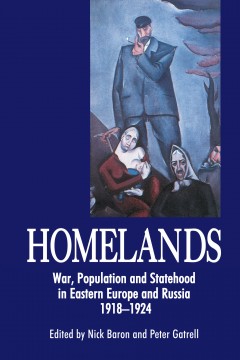 on the findings of two earlier AHRC-funded research projects on East European population displacement (see under 'Past Research', below), this public engagement and impact-focussed project aimed (a) to create accessible educational and public resources for the study of refugee and migrant histories; (b) to promote wider public awareness of contemporary issues relating to displacement, migration and asylum, and (c) to transform perceptions of the refugee experience in the past and present. Our means of public engagement included a multi-site exhibition and an educational resource pack, which we developed in collaboration with teachers and students from the Greater Manchester and Nottingham regions, and launched at a Nottingham teachers' workshop in November 2012. Our project partner was the Ahmed Iqbal Ullah Education Trust, and collaborators included the Society of Friends, Imperial War Museum, British Film Institute, and Nottingham City Museums and Galleries. For details of this project, see our web-site (will open in a new window
on the findings of two earlier AHRC-funded research projects on East European population displacement (see under 'Past Research', below), this public engagement and impact-focussed project aimed (a) to create accessible educational and public resources for the study of refugee and migrant histories; (b) to promote wider public awareness of contemporary issues relating to displacement, migration and asylum, and (c) to transform perceptions of the refugee experience in the past and present. Our means of public engagement included a multi-site exhibition and an educational resource pack, which we developed in collaboration with teachers and students from the Greater Manchester and Nottingham regions, and launched at a Nottingham teachers' workshop in November 2012. Our project partner was the Ahmed Iqbal Ullah Education Trust, and collaborators included the Society of Friends, Imperial War Museum, British Film Institute, and Nottingham City Museums and Galleries. For details of this project, see our web-site (will open in a new window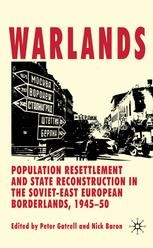 ).
).
Between 17 August and 23 September 2012, Nottingham Castle hosted our exhibition 'When the War was Over: European Refugees after 1945', which was seen by over 25,000 visitors. For the University press release on the exhibition, see here (opens a new window). The exhibition poster can be downloaded via this link.
The exhibition has since been displayed at the launch of the Centre for Advanced Studies (link opens in new window), University of Nottingham, October 2012; the University of Glasgow Memorial Chapel, February 2013; Highfield House, University of Nottingham, May-June 2013; New Art Exchange, Nottingham, 16-23 June 2014, to mark Refugee Week; at the UK HQ of Kresy-Siberia, an international organisation dedicated to examining and promoting the history of the Polish diaspora, Manchester, October 2014; and at Friends House in Amersham, June 2015, Friends House in Chesham, September 2015; Ukrainian Cultural Centre, Nottingham, 2022).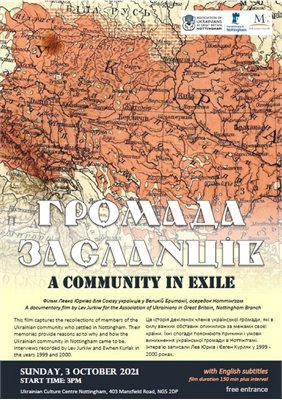
The project has also generated new collaborations. We have advised and supported 'Kresy-Siberia' (see above) in developing an online exhibition on post-1945 Polish migrations. Between 2014 and 2021 I worked with a Ukrainian community historian to produce an educational resource and a 2hr edited and subtitled documentary film 'A Community in Exile', based on oral history interviews (released October 2021).
2017 - Editor, Displaced Children in Russia and Eastern Europe, 1915-1953. Ideologies, Identities, Experiences (Leiden: Brill, 2017). This volume of essays arises from two AHRC-funded collaborative research projects on twentieth-century p opulation displacement (see below) as well as the follow-on project described above. It examines how East European nationalist and revolutionary regimes targeted children in campaigns of coercive re-socialisation associated with state- and nation-building, as well as how they strove to manage the consequences of child displacement caused by war, civil conflict, revolution and social collapse. Many of the chapters also reveal children's creativity and resourcefulness in devising means of coping with the consequences of marginalisation, overcoming trauma and improvising new identities and roles to enable them to negotiate their re-integration into society.
opulation displacement (see below) as well as the follow-on project described above. It examines how East European nationalist and revolutionary regimes targeted children in campaigns of coercive re-socialisation associated with state- and nation-building, as well as how they strove to manage the consequences of child displacement caused by war, civil conflict, revolution and social collapse. Many of the chapters also reveal children's creativity and resourcefulness in devising means of coping with the consequences of marginalisation, overcoming trauma and improvising new identities and roles to enable them to negotiate their re-integration into society.
2016-20 - Principal Investigator on pilot project 'Presenting Textual Sources for Public Engagement', which received funding from the University of Nottingham's Research Priority Area 'Heritage and the Digital'. This project involved collaboration among colleagues from the Department of History, Horizon, Manuscripts & Sp ecial Collections and the University's Digital Research Team. Using focus groups with academics, postgraduate researchers and community historians, and consultations with museum, library and archive specialists, we produced a set of requirements and options for the design of an open-access digital tool for the curation of online text exhibits. In June 2016 we received £20,000 from the AHRC-funded Centre for Hidden Histories (opens in a new window) at the University of Nottingham to support the further development of this product by the same research team. I was Principal Investigator of this new project 'COREL: Creating Online Resources for Engagement & Learning'. It concluded in summer 2020. For details, see the COREL website.
ecial Collections and the University's Digital Research Team. Using focus groups with academics, postgraduate researchers and community historians, and consultations with museum, library and archive specialists, we produced a set of requirements and options for the design of an open-access digital tool for the curation of online text exhibits. In June 2016 we received £20,000 from the AHRC-funded Centre for Hidden Histories (opens in a new window) at the University of Nottingham to support the further development of this product by the same research team. I was Principal Investigator of this new project 'COREL: Creating Online Resources for Engagement & Learning'. It concluded in summer 2020. For details, see the COREL website.
2014-20 - Co-Investigator on a project 'DHA Praxis: Interrogating Interdisciplinarity', involving collaborators from Horizon Digital Economy Research Institute and the Faculty of Arts, University of Nottingham. The project received approximately £40,000 from the University of Nottingham's Discipline Bridging Scheme, and had produced, among other outputs, a 'Good Practice Guide on Interdisciplinary Collaboration' and a video 'Interrogating Interdisciplinarity' (click on link to open YouTube in a new window). The project is now formally ended, but the team is still active co-authoring an article on using theories of interdisciplinarity to understand and improve collaborative practice, using digital humanities as an example.

2013-14 - Co-Investigator on a digital humanities project 'People-Events-Places' examining ways to visualize spatially-located data capturing human actions, perceptions and beliefs in the past. This involved a collaboration among the Horizon Digital Economy Research Institute and the Faculty of Arts, University of Nottingham, and the Digital Innovations Lab, University of North Carolina, and was funded by Horizon and the AHRC within the Data-Assets-Methods Network. I was lead author of an article 'Spatial Humanities: Moving Beyond the Dot on the Map', published in Proceedings of the Digital Research in the Humanities and Arts Conference, DRHA2014 (Maragiannis, Anastasios ed.), pp. 111-116.
2011-13 - Principal Investigator on a 2-year British Academy-funded project 'Theories, Ideologies, and Politics of Spatial Planning in Russia and Germany, 1890s to 1945'. This project examined how Russian and German academics in the first half of the 20th century rethought the nature of economic space and how their ideas interacted with political developments and state policy. It aimed to offer new insights into modern European history; the significance of space as object of theory and practice; the complex relations among science, technology, culture, ideology and politics; and the discursive origins and institutional formation of a 'rational' approach to spatial analysis that has shaped both geography's evolution as a discipline and planning and policy in the modern world.
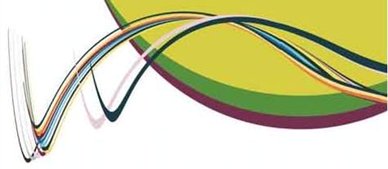 2010-11 - Funded collaborator on the Engineering and Physical Sciences Research Council (EPRSC)-funded interdisciplinary research project Towards Pervasive Media (2010-2011). As one of the leaders of the theme 'Curating the Landscape' I examined the mediation of spatial experience via mobile technologies. For TPM outputs please click image on left (opens in new window).
2010-11 - Funded collaborator on the Engineering and Physical Sciences Research Council (EPRSC)-funded interdisciplinary research project Towards Pervasive Media (2010-2011). As one of the leaders of the theme 'Curating the Landscape' I examined the mediation of spatial experience via mobile technologies. For TPM outputs please click image on left (opens in new window).
 2004-2009 - Co-director of AHRC-funded international collaborative research project Population Displacement, State Practice and Social Experience in Russia and Eastern Europe, 1930-1956 (with Prof. Peter Gatrell, University of Manchester).
2004-2009 - Co-director of AHRC-funded international collaborative research project Population Displacement, State Practice and Social Experience in Russia and Eastern Europe, 1930-1956 (with Prof. Peter Gatrell, University of Manchester).
1999-2004 - Senior Research Fellow and Project Manager on AHRB-funded research project Population Displacement, State-building and Social Identity in the Former Russian Empire, 1918-1930, University of Manchester (Director: P. Gatrell).
For more details on both these projects, please see the website here (opens in new window: please note, the site is now archived).
1997-2001 - ESRC-funded PhD studentship. Thesis title: 'Soviet Karelia, 1920-1937. A Study of Space and Power in Stalinist Russia' (Supervisors: Prof. R.W. Davies, Dr. E.A. Rees).